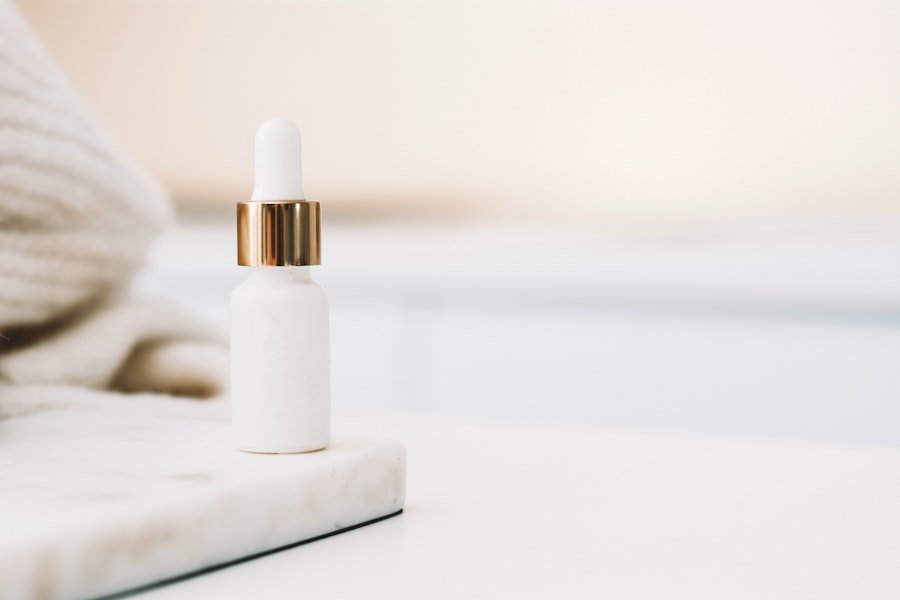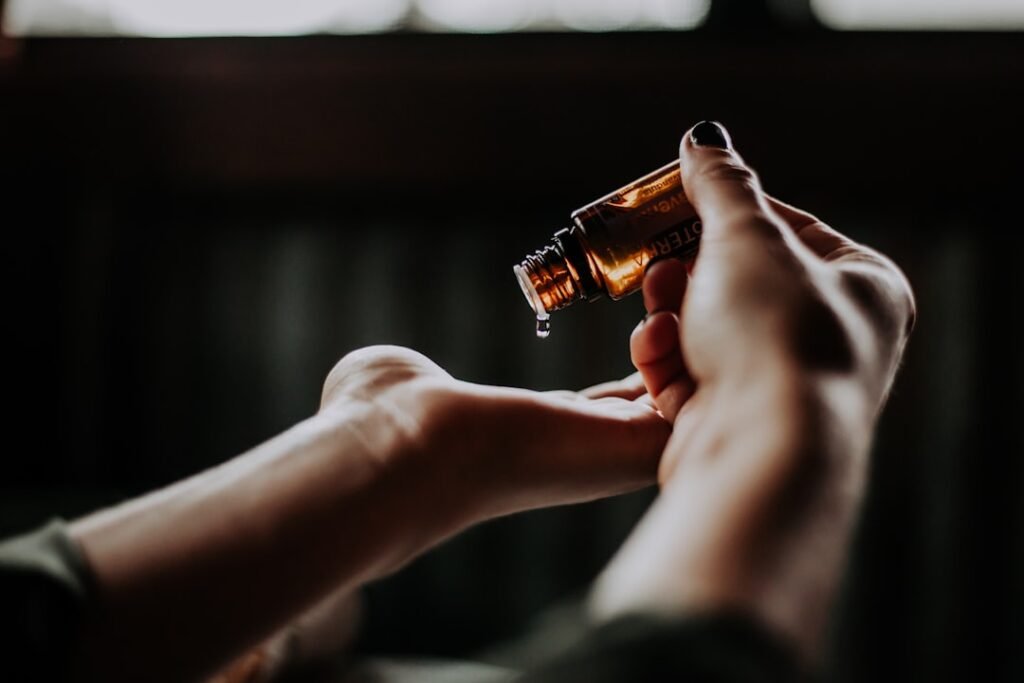As we delve into the world of skincare, we often encounter the term “retinoids.” These compounds, derived from vitamin A, have gained significant attention for their remarkable ability to transform skin health. Retinoids work at a cellular level, promoting cell turnover and encouraging the production of new skin cells. This process helps to shed dead skin, revealing a fresher, more youthful complexion beneath.
By stimulating collagen production, retinoids also play a crucial role in maintaining skin elasticity and firmness, making them a staple in many anti-aging regimens. The mechanism of action for retinoids is fascinating. When applied topically, they bind to specific receptors in skin cells, triggering a cascade of biological responses.
This interaction not only accelerates cell turnover but also helps to unclog pores, making retinoids effective in treating acne. Furthermore, they can reduce the appearance of fine lines and wrinkles by enhancing the skin’s overall texture and tone. Understanding how retinoids function allows us to appreciate their versatility and effectiveness in addressing various skin concerns.
Key Takeaways
- Retinoids are a group of vitamin A derivatives that work by promoting skin cell turnover and stimulating collagen production.
- The different types of retinoids include retinol, retinaldehyde, and retinoic acid, each with varying levels of potency and effectiveness.
- Retinoids benefit the skin by reducing signs of aging, treating acne, and improving skin texture and tone.
- Potential side effects of retinoids include irritation, sensitivity, and increased sun sensitivity, especially when not used with proper sun protection.
- Individuals with concerns such as aging, acne, and uneven skin texture can benefit from using retinoids, but those with sensitive skin should use caution.
The Different Types of Retinoids: Retinol, Retinaldehyde, and Retinoic Acid
Retinoids: A Family of Skincare Powerhouses
Retinoids come in various forms, each with its unique characteristics and benefits.
### Mild and Gentle
Retinol is perhaps the most well-known form of retinoid available over the counter. It is a milder option that converts to retinoic acid within the skin, making it a popular choice for those new to retinoids. Its gradual conversion allows for effective results while minimizing potential irritation, making it suitable for a wide range of skin types.
### Faster Results
Retinaldehyde is another form of retinoid that is slightly more potent than retinol. It also converts to retinoic acid but does so more efficiently, providing quicker results. This makes retinaldehyde an excellent option for individuals seeking faster improvements in their skin texture and tone.
### Prescription-Strength
Lastly, we have retinoic acid, which is the active form of vitamin A and is available only through prescription. It works immediately upon application and is often recommended for more severe skin issues, such as significant acne or pronounced signs of aging.
How Retinoids Benefit the Skin: Anti-aging, Acne Treatment, and Skin Texture Improvement

The benefits of incorporating retinoids into our skincare routine are numerous and well-documented. One of the most celebrated advantages is their anti-aging properties. As we age, our skin naturally loses collagen and elasticity, leading to the formation of fine lines and wrinkles.
Retinoids help combat these signs of aging by stimulating collagen production and promoting cell turnover. This results in smoother, firmer skin that appears more youthful and vibrant. In addition to their anti-aging effects, retinoids are also highly effective in treating acne.
By unclogging pores and reducing inflammation, they help prevent breakouts and promote clearer skin. Many individuals who struggle with acne find that incorporating retinoids into their regimen not only helps to clear existing blemishes but also prevents future ones from forming. Furthermore, retinoids can improve overall skin texture by reducing roughness and uneven tone, leading to a more radiant complexion.
Potential Side Effects of Retinoids: Irritation, Sensitivity, and Sun Sensitivity
While the benefits of retinoids are compelling, it is essential to acknowledge that they can also come with potential side effects. One of the most common issues individuals experience when starting a retinoid regimen is skin irritation. This can manifest as redness, peeling, or dryness, particularly during the initial weeks of use as our skin adjusts to the active ingredient.
It’s crucial for us to start slowly and allow our skin time to acclimate to avoid overwhelming it. Another concern we must consider is increased sensitivity to sunlight. Retinoids can make our skin more susceptible to sun damage, which is why diligent sun protection becomes paramount when using these products.
We should always apply sunscreen during the day and seek shade whenever possible to protect our skin from harmful UV rays. Understanding these potential side effects allows us to approach retinoid use with caution and care.
Who Should Use Retinoids: Skin Types and Concerns
Retinoids can be beneficial for a wide range of skin types and concerns; however, they may not be suitable for everyone. Individuals with oily or acne-prone skin often find retinoids particularly advantageous due to their ability to unclog pores and reduce breakouts. Those experiencing signs of aging, such as fine lines or uneven texture, can also benefit significantly from incorporating retinoids into their skincare routine.
Conversely, individuals with sensitive or reactive skin may need to exercise caution when using retinoids. For those with conditions like rosacea or eczema, it may be wise to consult with a dermatologist before introducing these potent ingredients into our regimen. By understanding our unique skin type and concerns, we can make informed decisions about whether retinoids are right for us.
How to Incorporate Retinoids Into Your Skincare Routine: Frequency and Application

Gradual Introduction
For those new to retinoids, we recommend beginning with a lower concentration product and applying it just two to three times a week. This allows our skin to gradually adjust without overwhelming it.
Optimal Application
Application is equally important; we should apply retinoids on clean, dry skin in the evening after cleansing and before moisturizing. This ensures optimal absorption and minimizes potential irritation.
Minimizing Side Effects
It’s also advisable to avoid using other potent active ingredients on the same nights as our retinoid application to prevent excessive irritation. By establishing a consistent routine that prioritizes gradual introduction and proper application techniques, we can maximize the benefits of retinoids while minimizing potential side effects.
Combining Retinoids with Other Skincare Ingredients: What to Avoid
While combining various skincare ingredients can enhance our routine’s effectiveness, we must be cautious when pairing retinoids with certain actives. Ingredients like alpha hydroxy acids (AHAs) or beta hydroxy acids (BHAs) can increase exfoliation and irritation when used alongside retinoids. Therefore, it’s best for us to alternate these products on different nights rather than layering them together.
Additionally, we should be mindful when using products containing vitamin C or other potent antioxidants in conjunction with retinoids. While both ingredients offer significant benefits for our skin, using them simultaneously may lead to increased sensitivity or irritation. Instead, we can reserve vitamin C for morning use while applying our retinoid at night.
By being strategic about our ingredient combinations, we can create a balanced skincare routine that maximizes results without compromising our skin’s health.
When selecting a retinoid product, we have options ranging from over-the-counter formulations to prescription-strength treatments. Over-the-counter products typically contain lower concentrations of retinol or retinaldehyde, making them accessible for those new to retinoids or with sensitive skin types. These products can still deliver impressive results over time while minimizing potential irritation.
For individuals with more severe skin concerns or those who have not seen satisfactory results from over-the-counter options, prescription-strength retinoic acid may be necessary. These products are more potent and provide faster results but may also come with a higher risk of irritation. Consulting with a dermatologist can help us determine which option is best suited for our specific needs and goals.
The Importance of Sun Protection When Using Retinoids
As we incorporate retinoids into our skincare routine, one aspect that cannot be overlooked is sun protection. Since retinoids increase our skin’s sensitivity to UV rays, diligent sun protection becomes essential in preventing sunburns and long-term damage. We should apply a broad-spectrum sunscreen with an SPF of at least 30 every day, even on cloudy days or when staying indoors.
In addition to sunscreen application, wearing protective clothing and seeking shade during peak sun hours can further safeguard our skin from harmful UV exposure. By prioritizing sun protection while using retinoids, we not only enhance the effectiveness of these powerful ingredients but also maintain the overall health and appearance of our skin.
Common Myths and Misconceptions About Retinoids
Despite their popularity in skincare circles, several myths surrounding retinoids persist that can lead to confusion among consumers. One common misconception is that all retinoids cause excessive peeling or irritation; while some individuals may experience this initially, many find that their skin adjusts over time with consistent use. Starting slowly and choosing the right formulation can significantly mitigate these concerns.
Another myth suggests that once we achieve desired results with retinoids, we can stop using them altogether. However, maintaining results often requires ongoing use; discontinuing treatment may lead to a reversal of improvements over time. Understanding these myths allows us to approach retinoid use with realistic expectations and informed decisions.
Consultation with a Dermatologist: When to Seek Professional Advice
While many individuals can successfully incorporate retinoids into their skincare routine independently, there are times when consulting with a dermatologist becomes essential. If we experience persistent irritation or adverse reactions despite following recommended guidelines, seeking professional advice can help us navigate these challenges effectively. Additionally, if we have specific skin concerns such as severe acne or significant signs of aging that do not respond to over-the-counter options, a dermatologist can provide tailored recommendations based on our unique needs.
By recognizing when professional guidance is necessary, we empower ourselves to achieve optimal results while ensuring the health and safety of our skin. In conclusion, understanding retinoids—how they work, their various forms, benefits, potential side effects, and proper usage—can significantly enhance our skincare journey. By approaching these powerful ingredients thoughtfully and strategically incorporating them into our routines while prioritizing sun protection and professional guidance when needed, we can unlock the transformative potential of retinoids for healthier, more radiant skin.
If you’re interested in learning more about cosmetic enhancements, check out com/cosmetic-dermatology/cosmetic-enhancements/’>this article for valuable information.
It covers a wide range of procedures that can help improve your skin’s appearance and overall health. Whether you’re considering Botox, fillers, or other treatments, this article will provide you with the knowledge you need to make an informed decision.
FAQs
What are retinoids?
Retinoids are a class of compounds derived from vitamin A that are commonly used in skincare products for their anti-aging and acne-fighting properties.
What is retinol?
Retinol is a type of retinoid that is commonly found in over-the-counter skincare products. It is less potent than prescription-strength retinoids, but still effective in promoting skin cell turnover and reducing the appearance of fine lines and wrinkles.
What are the benefits of using retinoids?
Retinoids have been shown to improve the appearance of fine lines and wrinkles, promote collagen production, reduce acne and acne scarring, and even out skin tone.
Are there any side effects of using retinoids?
Common side effects of using retinoids include dryness, redness, and peeling of the skin. It is important to start with a lower concentration and gradually increase usage to minimize these side effects.
Can retinoids be used with other skincare ingredients?
Retinoids can be used in conjunction with other skincare ingredients, but it is important to be cautious when combining them with exfoliating acids or benzoyl peroxide, as they can increase skin sensitivity.
Who should avoid using retinoids?
Pregnant or breastfeeding women should avoid using retinoids, as well as individuals with sensitive skin or conditions such as eczema or rosacea. It is always best to consult with a dermatologist before incorporating retinoids into your skincare routine.


